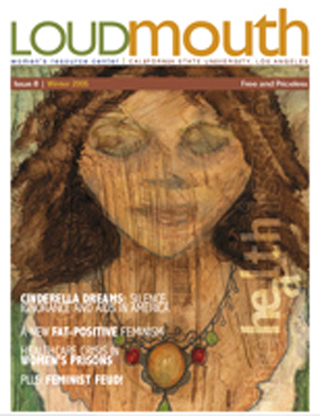What Feminism Means To Me

In many ways psychotherapy and feminism seem like they should go hand in hand. Both are about empowerment, self-understanding and health. Both deal with the negative effects of (patriarchal) society on the psychology of women and men. As a psychotherapist and a feminist, I think about the relationship between these schools of thought on a daily basis.
In western society, men are socialized not to have or express feelings that may appear to detract from their “strength,” such as fear. While many women have a greater sense of the emotional aspects of life due to their need to be attuned to the moods of the dominant group (and their being allowed to have this focus, unlike men), this can become dysfunctional when it results in a hypersensitivity to the moods of others and a simultaneous lack of attunement to, or tendency to undervalue, one’s own feelings. Helping female therapy clients become better attuned to their emotions is in many cases as necessary as helping men to do so — despite the attribution society gives to women of being more “emotional.”
All therapists are aware of these gender-based issues, whether they call themselves feminists or not.
However, while as a psychotherapist I must consider the societal forces that contribute to my clients’ symptoms, internal (psychological) processes are traditionally the primary focus. Although this in and of itself need not be harmful, if I do not consider the sociopolitical context in which my clients’ symptoms develop, I also run the risk of failing to examine the ways in which my values have been shaped by sexism. This is problematic because though therapists are supposed to be neutral, this is an impossibility; even if I do not explicitly reveal my values to my clients, they are revealed in the questions that I ask and don’t ask, etc. Therefore, if I am not aware of the ways in which I have been socialized to hold sexist values, I risk imposing these values on my clients, thereby harming them.
Another challenge I face is reconciling my status as “expert” with my feminist objectives. Proponents of feminist theory believe that the power differential between therapist and client ought to be done away with so as to avoid a paternalistic stance that suggests that the therapist knows more about the client than she knows about herself. While the merit of this is the idea of empowering the client, it is artificial to deny the skills and specialized training of the therapist. Clients request my services precisely because I have skills that they don’t (just as I call a plumber when my pipe bursts because I have no knowledge of plumbing). Furthermore, as a woman, the act of downplaying my skills and knowledge seems antithetical to the principles of feminism. Of course, I want to avoid contributing to my female clients’ oppression. The ideal, then, is to create an environment of collaboration between my client and me — my client possesses a great deal of selfwisdom and an inherent understanding of what is necessary for mental health, and my role is to facilitate the process of discovering this wisdom.
Susan is a psychologist at a nonprofit agency serving the homeless in downtown Los Angeles.


Very Interesting article, would it be more beneficial for male patients to see Female therapists and vice versa….?
It is very true how women are much more in-tuned with their emotion verus men.